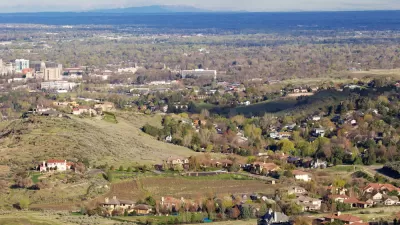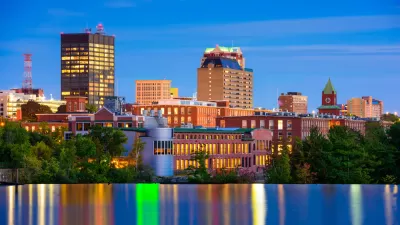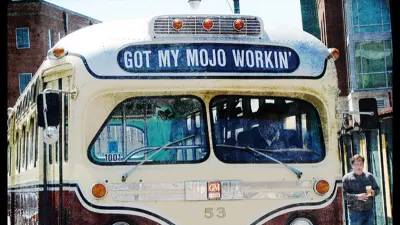Communities across the country need to dismantle exclusionary barriers and rebalance spending to invest more equitably across neighborhoods, according to this article by the Urban Institute.

"The past several weeks and months have made painfully apparent the ways in which structural racism destroys lives and livelihoods and holds us back as a nation," according to an article by Margery Austin Turner and Solomon Greene.
We have seen communities of color ravaged by both the health risks and economic fallout of the COVID-19 crisis and how police violence tracks stubborn patterns of segregation and disinvestment from Black and brown neighborhoods. If Americans of goodwill genuinely desire to tear down the systems and institutions that sustain racial injustice and inequity, we should start by reimagining the neighborhoods where we live.
Much of the discussion about systemic racism in intersection with planning and urbanism has focused on issues of safety in the public realm and the effects of exclusionary zoning and discriminatory real estate practices, this article brings the focus to the cultural and social importance of neighborhoods.
The fact that many families of color live in neighborhoods "suffering from disinvestment, deprived of quality services and amenities, and endangered by overpolicing" didn't happen by accident, according to Turner and Greene.
In response, the duo suggest a new, ambitious program of investment in underserved neighborhoods, as well as the new scale of collaboration necessary to achieve those goals.
FULL STORY: Reimagining an Antiracist America—Starting with Our Neighborhoods

Alabama: Trump Terminates Settlements for Black Communities Harmed By Raw Sewage
Trump deemed the landmark civil rights agreement “illegal DEI and environmental justice policy.”

Study: Maui’s Plan to Convert Vacation Rentals to Long-Term Housing Could Cause Nearly $1 Billion Economic Loss
The plan would reduce visitor accommodation by 25% resulting in 1,900 jobs lost.

Planetizen Federal Action Tracker
A weekly monitor of how Trump’s orders and actions are impacting planners and planning in America.

Waymo Gets Permission to Map SF’s Market Street
If allowed to operate on the traffic-restricted street, Waymo’s autonomous taxis would have a leg up over ride-hailing competitors — and counter the city’s efforts to grow bike and pedestrian on the thoroughfare.

Parklet Symposium Highlights the Success of Shared Spaces
Parklets got a boost during the Covid-19 pandemic, when the concept was translated to outdoor dining programs that offered restaurants a lifeline during the shutdown.

Federal Homelessness Agency Places Entire Staff on Leave
The U.S. Interagency Council on Homelessness is the only federal agency dedicated to preventing and ending homelessness.
Urban Design for Planners 1: Software Tools
This six-course series explores essential urban design concepts using open source software and equips planners with the tools they need to participate fully in the urban design process.
Planning for Universal Design
Learn the tools for implementing Universal Design in planning regulations.
Caltrans
Smith Gee Studio
Institute for Housing and Urban Development Studies (IHS)
City of Grandview
Harvard GSD Executive Education
Toledo-Lucas County Plan Commissions
Salt Lake City
NYU Wagner Graduate School of Public Service





























